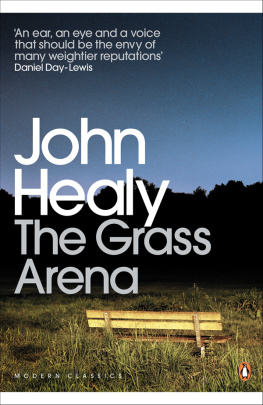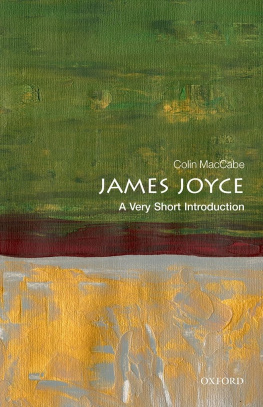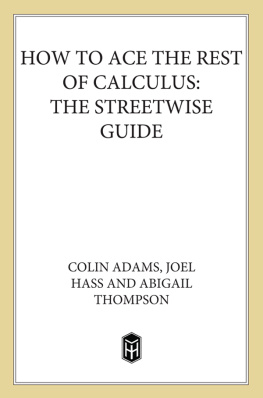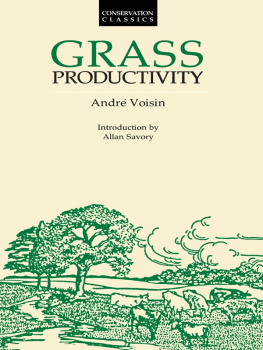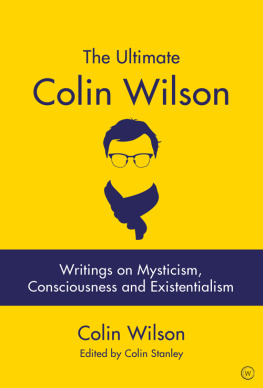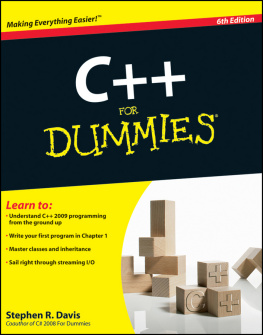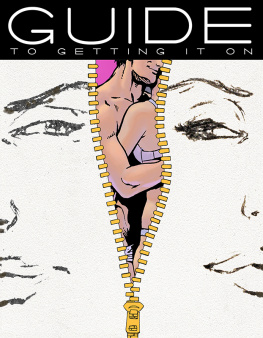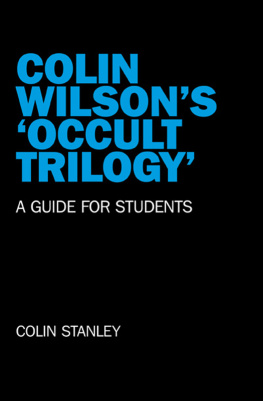Colin MacCabe - The Grass Arena
Here you can read online Colin MacCabe - The Grass Arena full text of the book (entire story) in english for free. Download pdf and epub, get meaning, cover and reviews about this ebook. year: 2015, publisher: Penguin Books Ltd, genre: Non-fiction. Description of the work, (preface) as well as reviews are available. Best literature library LitArk.com created for fans of good reading and offers a wide selection of genres:
Romance novel
Science fiction
Adventure
Detective
Science
History
Home and family
Prose
Art
Politics
Computer
Non-fiction
Religion
Business
Children
Humor
Choose a favorite category and find really read worthwhile books. Enjoy immersion in the world of imagination, feel the emotions of the characters or learn something new for yourself, make an fascinating discovery.
- Book:The Grass Arena
- Author:
- Publisher:Penguin Books Ltd
- Genre:
- Year:2015
- Rating:3 / 5
- Favourites:Add to favourites
- Your mark:
- 60
- 1
- 2
- 3
- 4
- 5
The Grass Arena: summary, description and annotation
We offer to read an annotation, description, summary or preface (depends on what the author of the book "The Grass Arena" wrote himself). If you haven't found the necessary information about the book — write in the comments, we will try to find it.
The Grass Arena — read online for free the complete book (whole text) full work
Below is the text of the book, divided by pages. System saving the place of the last page read, allows you to conveniently read the book "The Grass Arena" online for free, without having to search again every time where you left off. Put a bookmark, and you can go to the page where you finished reading at any time.
Font size:
Interval:
Bookmark:

Born in London to poor Irish parents, hardened on the streets by the age of seven, out of school at fourteen, John Healey casts himself neither as hero nor victim as he recalls the downward spiral of his teenage years, overwhelmed by alcoholism, isolated on the edge of society.
Pressed into the army, bruised by military prison and the boxing ring, dependent on drink, he ends up in the grass arena the terrifying world ruled by psychopaths and peopled by beggars, con-men, thieves, prostitutes and killers, where the law is enforced with the broken bottle, the boot and the knife. A sordid early death seems inevitable until, in prison, he learns to play chess. His single-minded devotion to the game combines with a remarkable natural ability: he becomes a tournament champion, he plays grand masters; his brilliances are reported in the national press. One addiction is abandoned for another and his life is transformed. Peace, however, remains elusive and the quest continues.
John Healy has written an astonishing autobiography. By turns lyrical and brutal, The Grass Arena scalds the reader with the harsh intensity of its vision. See www.thegrassarena.net for more.
PENGUIN MODERN CLASSICS
The last thing John Healy needs is a tidy snippet of blurb from the likes of me, which is a good thing because economy defeats me; I dont know how to be moderate or concise in praise of his startling autobiography The Grass Arena. So economy Ill leave to him, a master storyteller with an ear, an eye and a voice that should be the envy of many men with weightier reputations. There is no perceptible distance between the words, which seem to have chosen themselves and the experiences from which they blossomed like a garden of wild flowers. Armed to the teeth with his wit and self-knowledge he takes us to that other place, his grass arena, the one which we pass how many times in any given day, averting our eyes? The one into whose violent clutches we might descend more easily than we dare to contemplate. He is our jaunty, gleeful tour guide and messenger from hell. His fellow combatants, exuberant, murderous and sentimental, by turns touchingly loyal, vengeful and treacherous seem to have sprung from the same bloodlines as Falstaff, Pistol, Nell and their fellows. They pitch their tents in the same refuse-filled shadows as their forebears; a confederacy of the dispossessed. Healys life, were it not for an astonishing turn of events, seems predestined to be a short one. As in Knut Hamsuns mighty book Hunger, we are utterly compelled both by the power of Healys story and his great power in the telling of it, no matter how bleak the outlook, to stay by his side until the last word is writ.
Daniel Day-Lewis
August 2008

UK | USA | Canada | Ireland | Australia
India | New Zealand | South Africa
Penguin Books is part of the Penguin Random House group of companies whose addresses can be found at global.penguinrandomhouse.com.

First published Faber and Faber 1988
Published in Penguin Classics with revisions 2008
Reissued with further revisions 2012
Copyright John Healy, 1988, 2008, 2012
All rights reserved
The moral right of the author has been asserted
ISBN: 978-0-141-88949-8
To my mother
I wish to thank:
Yana Stajna for her energy and encouragement
Frank McAllan for typing The Grass Arena
Clive Soley for aiding my escape from the grass arena

My father didnt look like he would harmanyone. He was of average height and build, jet-black hair, a handsome, weather-beatenface from working outdoors. He had nice brown eyes, and when he laughed you could seeall his perfect teeth. He never laughed with me, though; instead, whatever I did orsaid, he would tell me to shut my mouth. When he got into a temper his eyes seemed toturn backwards in his head, going a dark muddy colour, and he would lash out with hisfist or foot. He would not stop until I was bleeding or until my mother got in betweenus; even then he would take a long time to calm down, and he would still keep shoutingabuse and threats for a good while after.
One cold winters night, it started to snow. My father quickenedhis pace, forcing myself and the puppy he held on a lead to run to keep up. As wereached the old railway bridge in Kentish Town, the snow began to fall heavier causingus to take shelter under it. A few minutes later a policeman came by, his helmet andtunic white with snowflakes. Seeing us huddled against the wall, he made as if to stop,changed his mind, nodded at my father and walked smartly on. I looked up at myfathers face. I thought he looked worried. At six years of age itsdifficult to know what adults are thinking, so I asked, Havent you got adog licence, Dad?
His eyes turned back in his head as he punched me in the face, knocking me to the ground. The pain and the shock made mecry. He dragged me back to my feet, shouting all the while that I was a tyrant. Pushinga hanky into my face he started to wipe the blood and snot from my nose, saying,Be quiet, or Ill tell your mother what a tyrant you are. Ididnt know what a tyrant was, nor how I had become one.
My father and mother were Irish immigrants. Theycame from small farms within twenty miles of each other. They met in London in the 1930sat a dance and got married. We lived in the top two rooms of an old house in KentishTown, a three-storey decrepit pile of bricks, the surrounding houses only a littlebetter. Our neighbours on both sides were Londoners and, being immigrants, we weretreated as lepers. Our backyards, separated by low walls, backed on to each otherforming a large T-shape where they met. The Hams made up the cross-section of the T,while Mr and Mrs Somers and ourselves formed the stem.
Sometimes my father would leave me locked out in theyard whenever he felt I was asking too many bloody questions.
Kids should be seen and not heard, he would shout as hebolted the scullery door. It made me miserable because it took away your importance tobe locked out in the yard.
It was nice to see that Mr Ham was here, though, with a little smile onhis face as he quietly and carefully pottered about in his own narrow yard. Hedidnt look up or say anything, and nor did I expect him to, because my fathersaid the German guns had made him silent. My mum said it was because hed beenvery brave during the war and won a medal. Which made his silence seem important,because whenever I called a greeting or tried to climb over the wall to tell him things,his eyes would roll towards heaven as if trying to convey the futility of words, and,palming the air with his hand, he would draw a loud and laboured breath, his face in atortured grimace throughout. At such times he didnt look like he had won amedal.
Mr Somers looked like a tough guy though cigarette hanging from hismouth, hair greased back, always walking very fast as if he had somewhere important togo even when he was only going to the dustbin. I dont think Mr Somers had time tospeak, but Mrs Somers made up for that. She walked very slowly and deliberately, herhips moving with a cute little motion first one side would jut out, and then theother; perhaps it was her skirts they were skin-tight, and her slip never showed atthe bottom like the other womens did. I liked watching her, she would linger atthe dustbin, saying, Hows my sweetheart today? Then after the lidhad clattered back into place, wiggling and wobbling, like a clockwork doll, shedgo back to her door, stop, turn her head slowly and wink at me before disappearinginside. And then you wish youd spoken, you really wished you had because everymoment in the yard seemed like for ever. But she made you shy, so there was nothing leftbut to take the lid of the dustbin and stand like a soldier against the wall. When mymother came out to check the clothesline I was still standing against the wall.
Font size:
Interval:
Bookmark:
Similar books «The Grass Arena»
Look at similar books to The Grass Arena. We have selected literature similar in name and meaning in the hope of providing readers with more options to find new, interesting, not yet read works.
Discussion, reviews of the book The Grass Arena and just readers' own opinions. Leave your comments, write what you think about the work, its meaning or the main characters. Specify what exactly you liked and what you didn't like, and why you think so.

